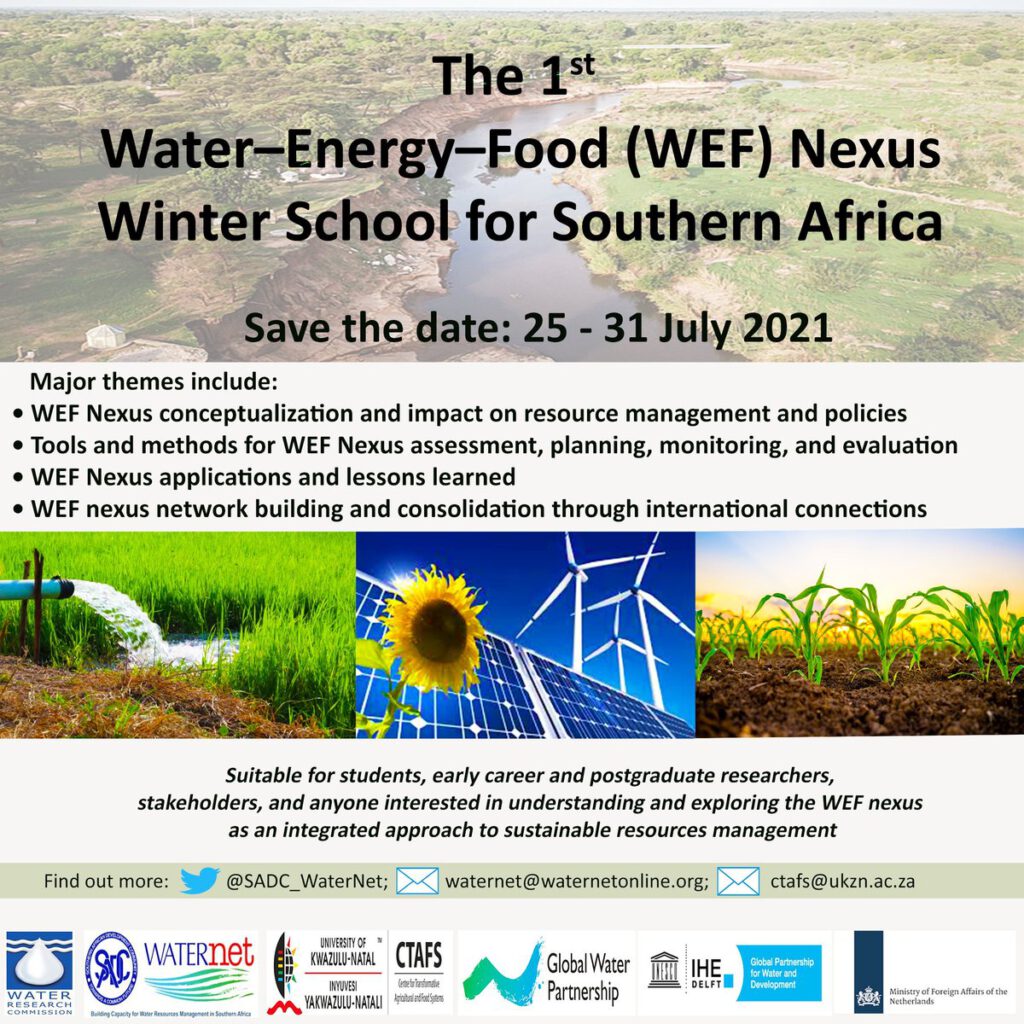Achieving water, energy, and food (WEF) security is a priority for southern Africa, especially under unfavorable climate change, increasing urbanization, population growth and advanced degradation of ecosystems. Since 2011, when the WEF nexus first came to prominence, various southern African actors have been championing it at multiple levels. There has been progress in building a shared understanding of the WEF nexus concept, using it to facilitate discourse through various multistakeholder dialogues, and recently developing frameworks and analytical models/tools.
During March 2020, the Water Research Commission of South Africa and the University of KwaZulu-Natal hosted a Regional Workshop on “Building Synergies in WEF Nexus Research”. Various regional and international stakeholders, including Penn State, were in attendance. During discussions, lack of capacity emerged as a critical challenge for operationalizing the WEF nexus in southern Africa. Emanating from the workshop, several partners including WaterNet, Water Research Commission of South Africa, University of KwaZulu-Natal and IHE – Delft, have partnered to organize and host an annual WEF Nexus Winter School, targeted at managers, early career researchers and postgraduates (Masters and PhD) from across southern Africa, Africa and other parts of the world, who are working in fields related to the WEF nexus, such as but not limited to agriculture, forestry, water, energy, engineering, climate change and ecosystems and the environment.
The inaugural Winter School has been scheduled from 26 – 30 July 2021 and will take place in Pretoria, South Africa. In addition, Penn State, UNU, and other WEF nexus in Africa initiative institutions will invite students to participate to enable learning across regions and continents. The overall objective of the winter school is to improve science-based decision-making capacities towards (i) achieving WEF securities, (ii) sustainable natural resources management, (iii) understanding WEF trade-offs and synergies, (iv) innovating through the WEF nexus for job creation, and (v) linking science to informing policy in their respective countries.

